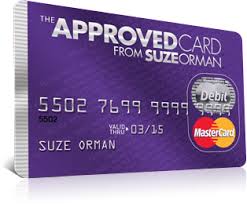Have you ever seen those pictures or videos of people walking on a tightrope between two very tall buildings? All those pictures are from a long time ago and it seems not many people do that as a thrill anymore (I wonder why??). Besides that, they are also extremely scary to watch. Walking on what seems like a razor thin piece of rope where one false move or breath will send you hurtling to your doom. Very stressful stuff.
Yet, this is how a lot of Americans are going about their financial lives nowadays. One unfortunate move or event, and their whole financial lives will come crashing down. This is a very stressful way to live, exhibited by the large increase in anti depressant and anti anxiety medications being used nowadays. But it’s not a simple pill that will take people off the financial tightrope. It’s a dedication to get off the paycheck to paycheck lifestyle that is all too common nowadays. Having some financial breathing room can make all the difference in the world, especially when the big monthly bills come due. Here are some immediate steps to take in order to get off the tightrope of financial ruin:
Take stock of your current situation: You have to know where you stand first before you start towards your goal. Start tracking your monthly income and expenses. You don’t have to do a budget or anything like that since budgets are not for everyone. But it is important to know what your income minus your expenses are. If your expenses are greater or pretty close to your income, you are living paycheck to paycheck. This is pretty easy to do especially if you use credit cards for most things. But if you don’t, a simple pen and paper will do.
Cut as many expenses as you’re comfortable with. Then cut some more: Living a step away from financial ruin is no way to live. It’s not worth cable TV. It’s not worth having a smartphone. And it’s not worth paying more than you have to for anything. Cut out non essential expenses, especially those you don’t use much. This includes the aforementioned cable TV and smartphones, but can also include gym memberships, subscriptions, and excess eating out. Also, try to minimize those those things you need like car insurance, groceries and clothing. Many people pay way too much for these things without even knowing it.
Make more money: Sounds simple enough. But it’s tough to implement unless you’re motivated to do it. And getting out of the paycheck to paycheck rut should be enough motivation. While you’re minimizing your expenses, it’s important to work on the other side of the equation as well by maximizing your income. Even something like working one extra day a month can make a difference. You need to do whatever you can to get out of this situation, and once you do you can resume working as many hours as you’re comfortable with. But find ways to make more money, be it working more hours, selling stuff or using some of your existing skills as some side income.
Build up a reserve: By cutting expenses or making some more money (or, ideally, both), you are increasing the amount of money you have leftover for the month. This “gap” between income and expenses is what creates real wealth and will save you from the paycheck to paycheck predicament. Now it’s important to build up some sort of cash reserve in your checking account or a savings account. This money should be relatively easy to access as it should be used for “emergency” situations that inevitably happen such as car trouble or surprises at the dentist.
Such unexpected events would be enough to derail a person walking a tightrope and cause them to plummet, either by forcing them to incur credit card debt or even something as drastic as declaring bankruptcy. This is the importance of a having a reserve or “emergency” fund.
Make it grow: By optimizing your expenses and income and having a healthy amount of reserve money, you are ahead of 95% of Americans financially. I don’t have any figures to back that up, but it’s probably true since the vast majority of Americans are in credit card debt. At this point, it’s wise to give your money the opportunity to grow over time. This can be done in many ways such as increasing your 401k contribution, investing in mutual funds, buying rental property or starting that business you’ve always dreamed of. This is the path to real wealth, and what a steady and glorious path it is.




